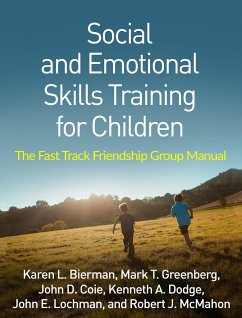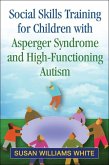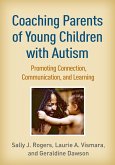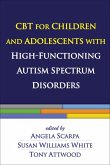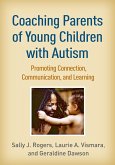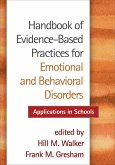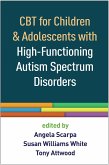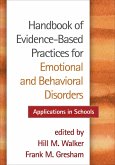Karen L. Bierman, Mark T. Greenberg, John D. Coie
Social and Emotional Skills Training for Children
The Fast Track Friendship Group Manual
Schade – dieser Artikel ist leider ausverkauft. Sobald wir wissen, ob und wann der Artikel wieder verfügbar ist, informieren wir Sie an dieser Stelle.
Karen L. Bierman, Mark T. Greenberg, John D. Coie
Social and Emotional Skills Training for Children
The Fast Track Friendship Group Manual
- Broschiertes Buch
- Merkliste
- Auf die Merkliste
- Bewerten Bewerten
- Teilen
- Produkt teilen
- Produkterinnerung
- Produkterinnerung
From leading authorities, this volume presents a unique evidence-based group intervention for the 10-15% of children who are challenged by peer difficulties in elementary school. The book features 145 engaging full-color reproducible handouts, posters, and other tools.
Andere Kunden interessierten sich auch für
![Social Skills Training for Children with Asperger Syndrome and High-Functioning Autism Social Skills Training for Children with Asperger Syndrome and High-Functioning Autism]() Susan Williams WhiteSocial Skills Training for Children with Asperger Syndrome and High-Functioning Autism57,99 €
Susan Williams WhiteSocial Skills Training for Children with Asperger Syndrome and High-Functioning Autism57,99 €![Coaching Parents of Young Children with Autism Coaching Parents of Young Children with Autism]() Sally J. Rogers (United States University of California)Coaching Parents of Young Children with Autism58,99 €
Sally J. Rogers (United States University of California)Coaching Parents of Young Children with Autism58,99 €![CBT for Children and Adolescents with High-Functioning Autism Spectrum Disorders CBT for Children and Adolescents with High-Functioning Autism Spectrum Disorders]() CBT for Children and Adolescents with High-Functioning Autism Spectrum Disorders86,99 €
CBT for Children and Adolescents with High-Functioning Autism Spectrum Disorders86,99 €![Coaching Parents of Young Children with Autism Coaching Parents of Young Children with Autism]() Sally J. Rogers (United States University of California)Coaching Parents of Young Children with Autism84,99 €
Sally J. Rogers (United States University of California)Coaching Parents of Young Children with Autism84,99 €![Handbook of Evidence-Based Practices for Emotional and Behavioral Disorders Handbook of Evidence-Based Practices for Emotional and Behavioral Disorders]() Handbook of Evidence-Based Practices for Emotional and Behavioral Disorders114,99 €
Handbook of Evidence-Based Practices for Emotional and Behavioral Disorders114,99 €![CBT for Children and Adolescents with High-Functioning Autism Spectrum Disorders CBT for Children and Adolescents with High-Functioning Autism Spectrum Disorders]() CBT for Children and Adolescents with High-Functioning Autism Spectrum Disorders47,99 €
CBT for Children and Adolescents with High-Functioning Autism Spectrum Disorders47,99 €![Handbook of Evidence-Based Practices for Emotional and Behavioral Disorders Handbook of Evidence-Based Practices for Emotional and Behavioral Disorders]() Handbook of Evidence-Based Practices for Emotional and Behavioral Disorders76,99 €
Handbook of Evidence-Based Practices for Emotional and Behavioral Disorders76,99 €-
-
-
From leading authorities, this volume presents a unique evidence-based group intervention for the 10-15% of children who are challenged by peer difficulties in elementary school. The book features 145 engaging full-color reproducible handouts, posters, and other tools.
Produktdetails
- Produktdetails
- Verlag: Guilford Publications
- Seitenzahl: 444
- Erscheinungstermin: 24. Juli 2017
- Englisch
- Abmessung: 267mm x 203mm x 20mm
- Gewicht: 1138g
- ISBN-13: 9781462531721
- ISBN-10: 1462531725
- Artikelnr.: 47368715
- Herstellerkennzeichnung
- Libri GmbH
- Europaallee 1
- 36244 Bad Hersfeld
- gpsr@libri.de
- Verlag: Guilford Publications
- Seitenzahl: 444
- Erscheinungstermin: 24. Juli 2017
- Englisch
- Abmessung: 267mm x 203mm x 20mm
- Gewicht: 1138g
- ISBN-13: 9781462531721
- ISBN-10: 1462531725
- Artikelnr.: 47368715
- Herstellerkennzeichnung
- Libri GmbH
- Europaallee 1
- 36244 Bad Hersfeld
- gpsr@libri.de
Karen L. Bierman, PhD, is Evan Pugh University Professor, Professor of Psychology and Human Development and Family Studies, and Director of the Child Study Center at Pennsylvania State University. Since the 1980s, her research has focused on social-emotional development and children at risk, with an emphasis on the design and evaluation of school-based programs that promote social competence, school readiness, and positive peer relations, and that reduce aggression and related behavior problems. Currently, she directs the Research-based Developmentally Informed (REDI) classroom and home visiting programs, developed in partnership with Head Start programs in Pennsylvania. A clinical psychologist, Dr. Bierman also directs a predoctoral training program in the interdisciplinary educational sciences. Dr. Bierman has served as an educational advisor to organizations including Head Start and Sesame Workshop. Mark T. Greenberg, PhD, is Emeritus Professor in the College of Health and Human Development at The Pennsylvania State University, where he is also Founding Director of the Edna Bennett Pierce Prevention Research Center. A developmental psychologist, Dr. Greenberg is the author of over 350 journal articles and book chapters on the development of well-being; learning; and the effects of prevention efforts on children and families. He is a Founding Board Member of the Collaborative for Academic, Social, and Emotional Learning (CASEL). Dr. Greenberg is the recipient of numerous awards, including the Urie Bronfenbrenner Award for Lifetime Contribution to Developmental Psychology in the Service of Science and Society from the American Psychological Association. One of his current interests is how to help nurture awareness and compassion in our society. He is Chairperson of the Board of CREATE, a nonprofit devoted to improving the quality of schooling and the lives of teachers and students. John D. Coie, PhD, is Professor Emeritus of Psychology: Social and Health Sciences at Duke University. He is a past Chair of the National Institute of Mental Health grant review panel on prevention research. A developmental and clinical psychologist, Dr. Coie has primarily focused his research on the development and prevention of serious antisocial behavior. He retired from Duke in 2000 but continues to be involved with the Fast Track project and has developed and comanaged a program in Santa Barbara, California, for providing non-English-speaking Hispanic children with computer-based English language and reading training. He continues to be active in programs designed to reduce violence and recidivism in the community. Kenneth A. Dodge, PhD, is the Pritzker Professor of Public Policy and Psychology and Neuroscience at Duke University. He is Founding and Emeritus Director of the Duke Center for Child and Family Policy. A clinical and developmental psychologist, Dr. Dodge studies early childhood development, prevention of violent behavior in the family, and public policy to improve population outcomes for communities. He is the developer of Family Connects, a population approach to improve children's outcomes in the first year of life. The author of more than 500 highly cited scientific articles, which have been cited more than 100,000 times, Dr. Dodge has been elected into the National Academy of Medicine and is the 2019-2021 President of the Society for Research in Child Development. John E. Lochman, PhD, ABPP, is Saxon Professor Emeritus in Psychology, Interim Director of the Alabama Life Research Institute, and Director Emeritus of the Center for Prevention of Youth Behavior Problems at the University of Alabama. He is also Adjunct Professor of Psychiatry and Behavioral Sciences at the Duke University Medical Center. A clinical psychologist, Dr. Lochman has authored more than 400 scientific articles, chapters, and books on the causes and consequences of highly aggressive behavior in childhood, and on the effects of intervention for this behavior. His current focus is research on dissemination, implementation, and adaptation of interventions. Dr. Lochman has served as Editor-in-Chief of the Journal of Abnormal Child Psychology and is a former President of the Society for Child and Family Policy and Practice (Division 37 of the American Psychological Association) and the American Board of Clinical Child and Adolescent Psychology. He is a recipient of the Distinguished Career Award from the Society of Clinical Child and Adolescent Psychology (Division 53 of the American Psychological Association). Robert J. McMahon, PhD, is Professor of Psychology at Simon Fraser University in Burnaby, British Columbia, Canada, where he is also B.C. Leading Edge Endowment Fund Leadership Chair in Proactive Approaches to Reducing Risk for Violence among Children and Youth. To carry out the work of the Chair, he directs the Institute for the Reduction of Youth Violence. He is also a senior scientist at the B.C. Children's Hospital Research Institute in Vancouver. A clinical psychologist, Dr. McMahon studies the assessment, treatment, and prevention of conduct problems and other problem behavior in children and youth, especially in the context of the family. He is author or editor of more than 250 books, scientific articles, chapters, and reviews; a past Editor-in-Chief of Prevention Science; and a recipient of the Service to SPR Award from the Society for Prevention Research and the Trailblazer Award from the Parenting and Families Special Interest Group, Association for Behavioral and Cognitive Therapies.
Introduction to the Friendship Group Manual
1. Overview
2. Program Administration
3. Therapeutic Processes
4. Behavior Management
5. Home-School Intervention: The Fast Track Model
Commonly Used Materials in Friendship Group
Session Posters
Agenda Pictures
Award Pages
Friendship Group Manual: Early Elementary Sessions
Unit I. Establishing Common Ground
Unit II. Caring and Controlled Behavior
Unit III. Negotiating with Friends
Unit IV. Handling Competitive Play
Unit V. Communicating Effectively
Unit VI. Coping with Tough Stuff
Friendship Group Manual: Advanced Elementary Sessions
Unit I. Cooperation and Conversation Skills
Unit II. Understanding and Respecting Others
Unit III. Coping with Social Stress
Unit IV. Responsible Decision Making
1. Overview
2. Program Administration
3. Therapeutic Processes
4. Behavior Management
5. Home-School Intervention: The Fast Track Model
Commonly Used Materials in Friendship Group
Session Posters
Agenda Pictures
Award Pages
Friendship Group Manual: Early Elementary Sessions
Unit I. Establishing Common Ground
Unit II. Caring and Controlled Behavior
Unit III. Negotiating with Friends
Unit IV. Handling Competitive Play
Unit V. Communicating Effectively
Unit VI. Coping with Tough Stuff
Friendship Group Manual: Advanced Elementary Sessions
Unit I. Cooperation and Conversation Skills
Unit II. Understanding and Respecting Others
Unit III. Coping with Social Stress
Unit IV. Responsible Decision Making
Introduction to the Friendship Group Manual
1. Overview
2. Program Administration
3. Therapeutic Processes
4. Behavior Management
5. Home-School Intervention: The Fast Track Model
Commonly Used Materials in Friendship Group
Session Posters
Agenda Pictures
Award Pages
Friendship Group Manual: Early Elementary Sessions
Unit I. Establishing Common Ground
Unit II. Caring and Controlled Behavior
Unit III. Negotiating with Friends
Unit IV. Handling Competitive Play
Unit V. Communicating Effectively
Unit VI. Coping with Tough Stuff
Friendship Group Manual: Advanced Elementary Sessions
Unit I. Cooperation and Conversation Skills
Unit II. Understanding and Respecting Others
Unit III. Coping with Social Stress
Unit IV. Responsible Decision Making
1. Overview
2. Program Administration
3. Therapeutic Processes
4. Behavior Management
5. Home-School Intervention: The Fast Track Model
Commonly Used Materials in Friendship Group
Session Posters
Agenda Pictures
Award Pages
Friendship Group Manual: Early Elementary Sessions
Unit I. Establishing Common Ground
Unit II. Caring and Controlled Behavior
Unit III. Negotiating with Friends
Unit IV. Handling Competitive Play
Unit V. Communicating Effectively
Unit VI. Coping with Tough Stuff
Friendship Group Manual: Advanced Elementary Sessions
Unit I. Cooperation and Conversation Skills
Unit II. Understanding and Respecting Others
Unit III. Coping with Social Stress
Unit IV. Responsible Decision Making

